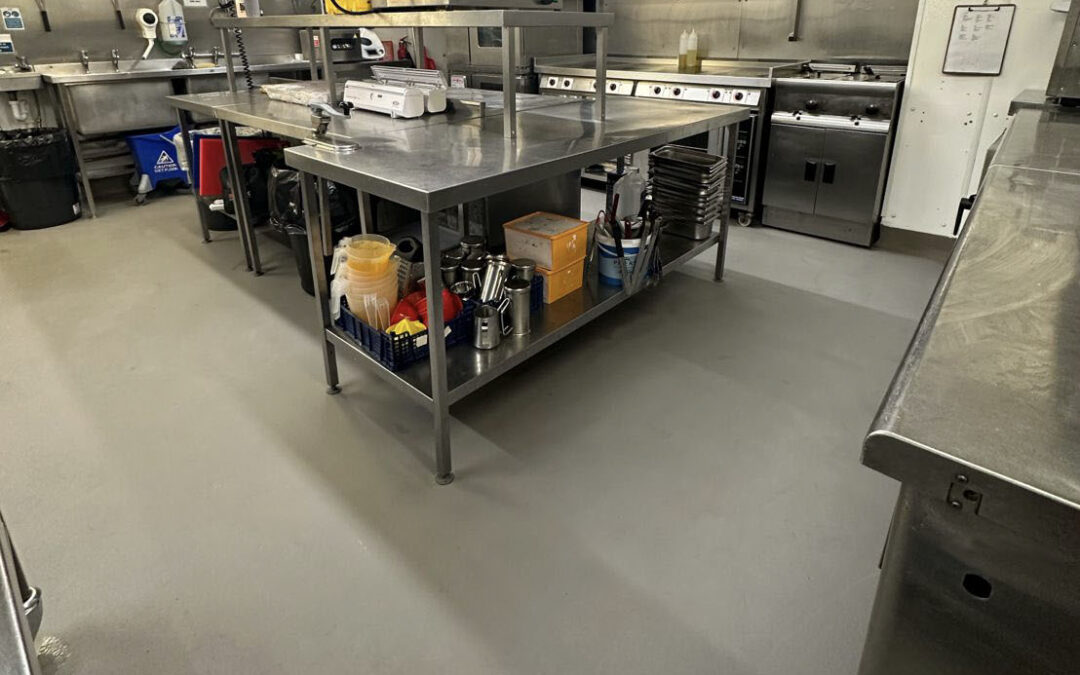Summary. For optimal results, a polyurethane resin screed system should be applied directly to concrete. However, when laying epoxy resin on stable quarry tiles, a DPM epoxy primer with quartz aggregate ensures a strong bond. PSC Flooring recently applied this method in a 90 square meter commercial kitchen, ensuring a durable, food-grade flooring solution
In all cases it is always best to be laying a polyurethane resin screed system down directly on to the concrete substrate. However, if you need to lay epoxy resin on quarry tiles, it shouldn’t be an issue as long as the tiles are solid. The deciding factor is always the stability of the substrate. It is imperative that the substrate is not breaking away or flexing.
To create a good bond with tiles, experts recommend laying a DPM Epoxy resin primer. Also, incorporating a heavy scatter of 0.6 to 1.2mm quartz aggregate. The DPM Epoxy resin primer helps the final 6mm RT polyurethane resin screed system to bond with the tile substrate. On the other hand, the heavy scatter of 0.6 to 1.2mm quartz aggregate helps to grip the 6mm RT polyurethane resin screed system to the DPM.
When would it not be appropriate to lay 6mm food grade flooring on top of tiles?
It would not be appropriate to lay 6mm food grade flooring on top of tiles if the tiles were not solidly stuck to the substrate. It is imperative that the substrate is not breaking way or flexing in any way. If it is, it would cause the 6mm RT polyurethane resin screed system to potentially crack if the substrate flexed and the 6mm was put under pressure.
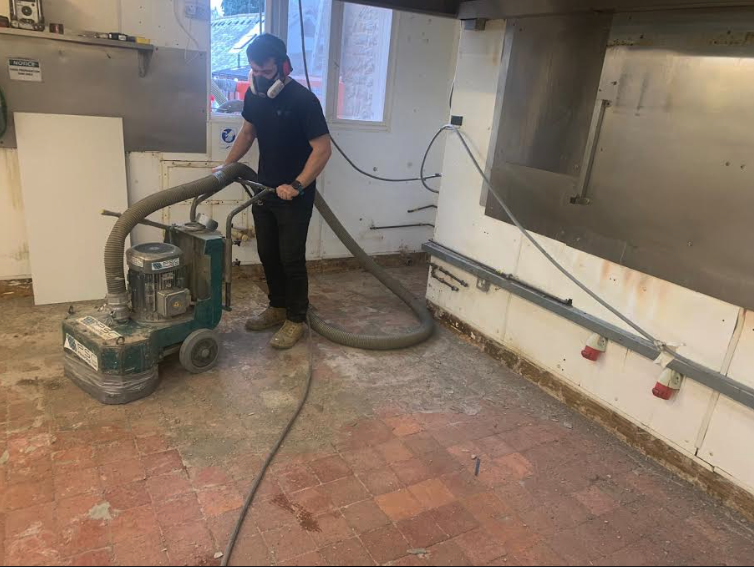
90 Square Meter Food Grade Flooring onto Quarry Tiles
PSC have recently completed 90 square meters of 6mm RT polyurethane resin screed system (Food Grade Flooring) onto Quarry tiles in a commercial kitchen for The Speech House Hotel, Royal Forest of Dean. During the site visit, they noted that the kitchen had a layer of sheet vinyl over the quarry tiles.
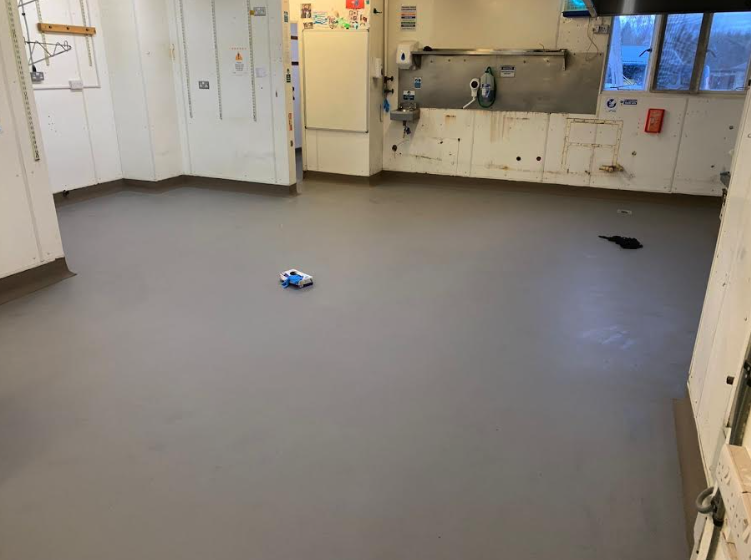
Client Brief & Recommendation
The client was looking for a food grade, seamless, hard wearing, impact resistant, chemical resistant, anti-slip resin floor that would last 10 years plus. Therefore, we recommended laying a DPM Epoxy resin primer before installing a 6mm Resdev Pumadur RT polyurethane resin screed system. Then finishing with 100mm high matching coving as is standard in commercial kitchens.
6mm Food Grade Resin Screed System – The Preparation
In preparation, the team uplifted the layer of sheet vinyl, exposing latex and adhesive on the quarry tiles. We then removed these using diamond grinding machinery. After that, we vacuumed clean of all residue and dust. The team then made 6mm x 10mm saw cuts to the door thresholds, around drains, gullies, and the floor area’s perimeter, anchoring the screed as necessary.
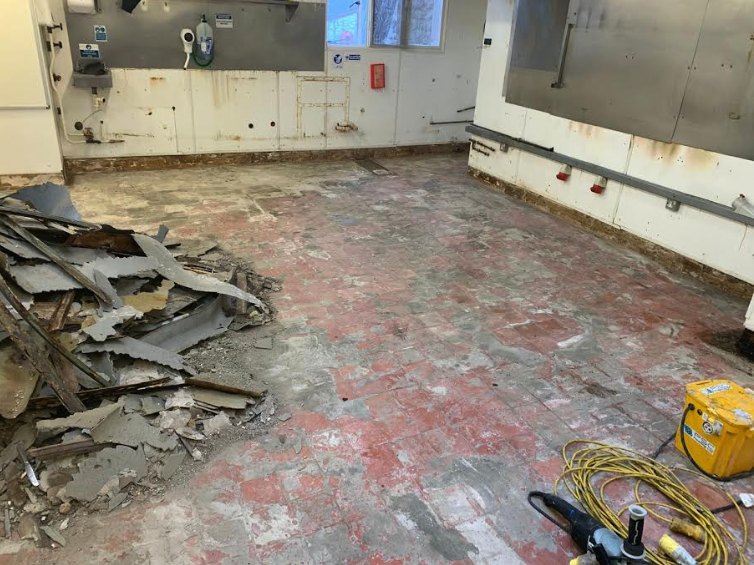
90 Square Meter 6mm RT Heavy Duty Polyurethane Screed
An DPM Epoxy resin primer with a heavy scatter was laid before a 6mm Resdev Pumadur RT polyurethane resin screed was laid in the clients chosen mid grey. The team complemented the floor with 50 linear metres of 100mm high CG polyurethane coving system.
Gill Hands – Director of The Speech House Hotel commented: “The food grade flooring system that PSC Flooring have installed has transformed our commercial kitchen.”
Completed on time and within budget this transformation speaks for its self.
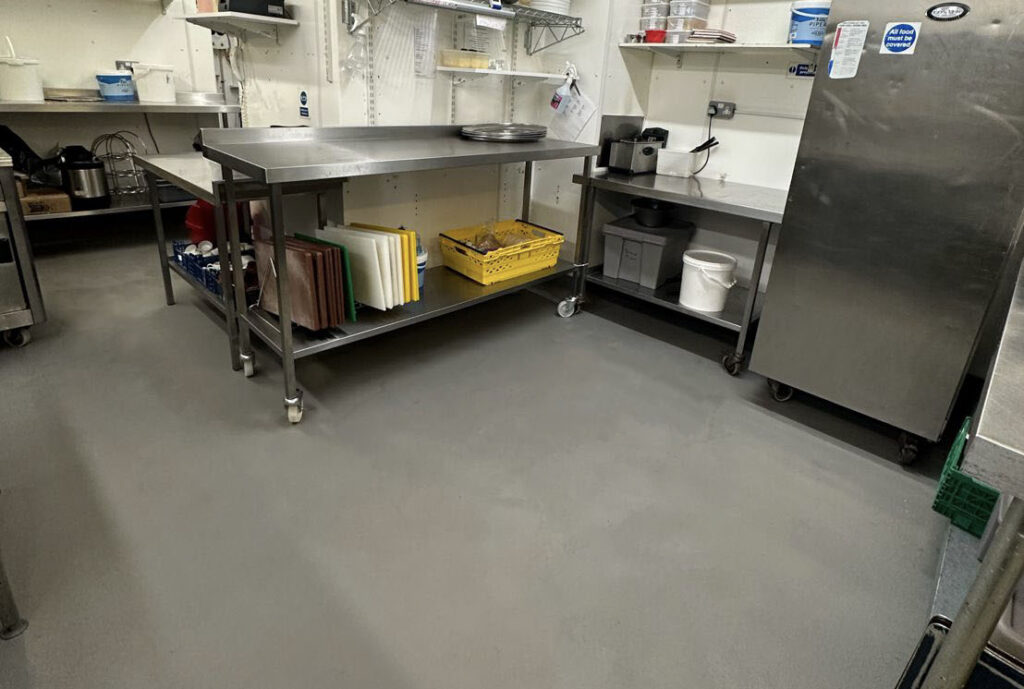
If you found this blog useful, check out a previous one: Preparation – The Key to a Perfect Finish

